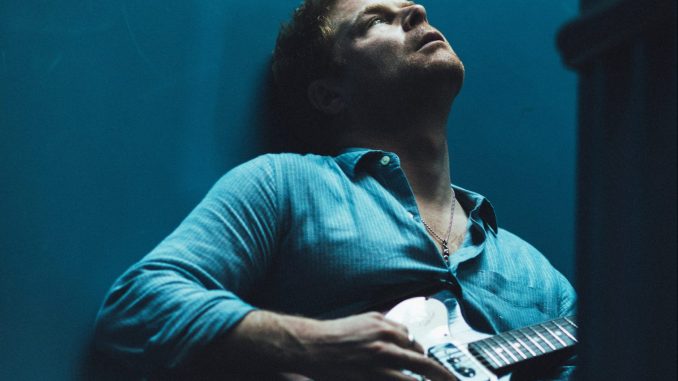
The latest video from Curse of Lono addresses a weighty theme with a sensitive and thought-provoking exploration of the experiences of Felix Bechtolsheimer’s German-Jewish great-great-uncle, a veteran of the First World War. It’s a heartbreaking story.
Bechtolsheimer explains the song’s huge significance: “‘Krieger’ is a song about my grandfather’s uncle, Heinrich Schwarz, a German Jew and decorated First World War hero, known locally as ‘der Krieger’ (German for The Warrior). He fought as a foot soldier in the trenches in Flanders, at the Battle Of The Aisne and in the Battle Of The Somme. He lost both his brothers and his brother-in-law in the First World War. After the war he spent his evenings drinking wine in the local bars. When the Nazis came to power, he would start arguments with the young Brown Shirts who would come into the bars bragging about their exploits and taunting him for being Jewish. Heinrich would laugh at them and tell them to go home to their mummies, ‘Don’t tell me what it means to be German,’ he would say. ‘I fought for this country.’ The young Nazis ambushed Heinrich on his way home from the bars on numerous occasions, often beating him within an inch of his life. His family would spend hours looking for him, eventually finding him half dead in a ditch. But Heinrich couldn’t help himself. He would be back in the same bars, starting the same arguments a few days later. One night in 1933, having had a few drinks, Heinrich was overheard saying that a local Jew had not committed suicide as reported by the authorities but had in fact been hanged by the Nazis whilst in protective custody. He also claimed that the Nazis had shot at women and children in the neighbouring village. He was reported and taken to court where he pleaded with the judge, claiming it was the wine that made him say these things and that his incarceration would leave his wife Karoline unable to support herself. The judge showed no mercy and jailed him for three months. The subsequent revocation of Heinrich’s business license left him and Karoline penniless, and they were forced to move in with relatives in a nearby village. While he was able to withstand war in the trenches and beatings by the Nazis, the idea that his drunken words had destroyed the life of his beloved wife Karoline was a terrible burden for him to bare. Despite being a decorated war hero, Heinrich was one of the first jews in the small town of Alzey to be deported by the Nazis. On 28th June 1938, only three months after the outbreak of the second World War, he was arrested and sent to Dachau Concentration Camp ‘for his own protection.’ He was moved to Buchenwald Concentration Camp on 23rd September that year, where he remained until he was shot on the 13th of April 1940.”
‘Krieger’ begins with scratching, compelling percussion and throbbing bass, before Bechtolsheimer begins to tell the tale in his almost-whispered, but still beautifully melodic, voice. As the story unfolds, ‘Krieger’ is musically hypnotic and totally absorbing. Artist Stefano Bertelli has produced an incredibly striking and inventive video that tells the story through stop-motion animation. The colours are bold and vibrant, except the figures, who are plain and indistinguishable from one another. Bertelli explains his vision for the song: “I try to understand with the help of the musical artist, the deeper meaning of the song, and then translate it into images. In this case, there is a story behind it that really happened, so I wanted to keep it true to reality though made in a paper world. That’s why I thought of reproducing a World War I trench with toy soldiers, as if it were a toy battlefield just abandoned by a child. But there is a truth behind it, and the contrast between the game of war, and the atrocity of real war, gives a deep sense of reflection. In my opinion, You don’t need to see blood to impress, you can do it in a more gentle way and strike deeper into the viewer’s soul.”
When he sings: “I drink with the ghosts of the past…Oh my brothers asleep in the ground, never to stir anymore” and we see the scattered and fallen soldiers, it is genuinely emotional. This is a standalone single, to absorb and reflect on. Check it out.


